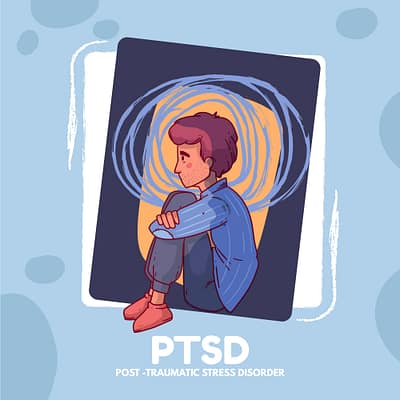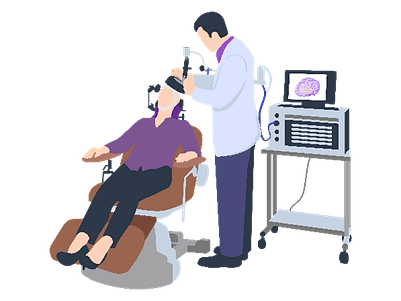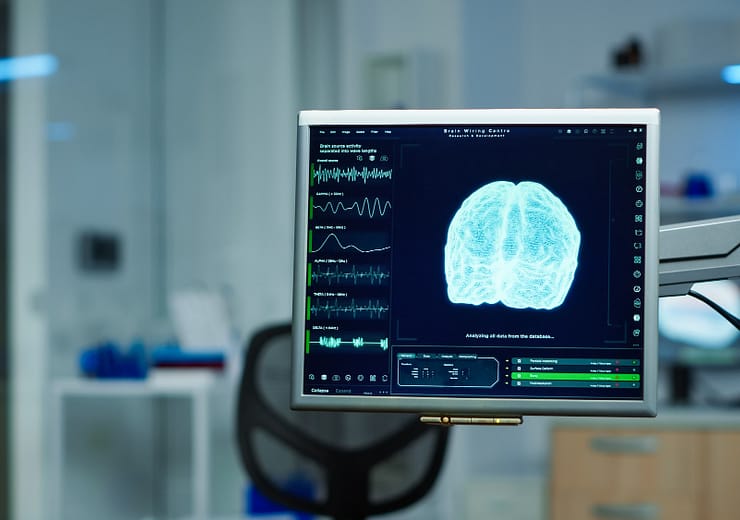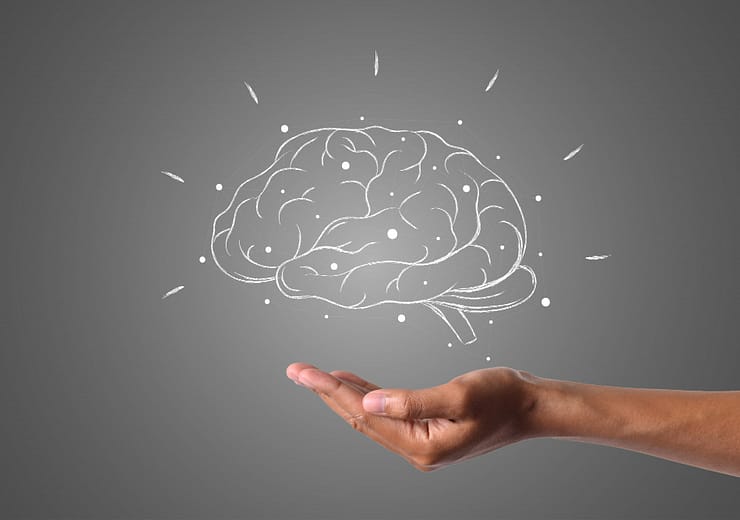Unlocking the Potential: How dTMS Therapy Can Improve Mental Health
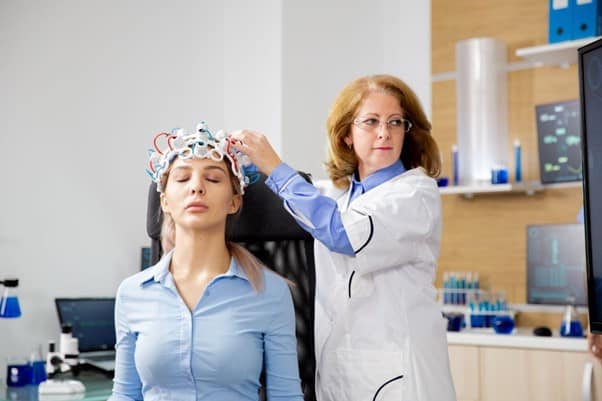
Introduction to the dTMS Therapy and How the TMS Therapy & Process Works
In the world of mental health, finding the best dTMS Treatment in Mumbai can be like searching for a needle in a haystack. But what if we told you there’s a promising therapy called dTMS treatment at RNR Medicine that might just be the key to unlocking better mental health? In this blog, we’ll dive deep into the world of TMS therapy, exploring how it works, the conditions it can treat, its effectiveness, and what you can expect during the treatment process. Let’s embark on this journey to discover how dTMS/ TMS can make a difference in the lives of those struggling with mental health issues
How does TMS Therapy Work?
Deep Transcranial Magnetic Stimulation or dTMS/ TMS, is a non-invasive mental health treatment. Using magnetic pulses, it targets specific brain areas to help with conditions like depression, anxiety, OCD, TMS for PTSD, and chronic migraines.
Unlike surgery or medication, our best dTMS Treatment in Mumbai offers a gentler approach to improving mental well-being. Think of it as a therapy that fine-tunes the brain, much like adjusting a radio to get a better signal. In this blog, we’ll delve deeper into how this innovative therapy works and the remarkable impact it can have on mental health, offering new hope to those seeking relief.
How TMS Works on Brain Function?
The TMS therapy in Mumbai, or Deep Transcranial Magnetic Stimulation(dTMS), is like a gentle brain massage. It uses magnetic pulses to reach specific brain areas. Imagine your brain as a complex orchestra, with different sections responsible for mood, thoughts, and feelings. Sometimes, these sections aren’t playing in harmony.
That’s where TMS comes in – it sends magnetic pulses to the trouble spots, helping them work better together. It’s like tuning an instrument in the orchestra to create beautiful music. Can TMS improve brain function? This therapy can improve brain function and, in turn, help manage mental health conditions effectively.
What Conditions Can TMS/dTMS Treat? 5 Mental Issues TMS Can Cure
The Repetitive Transcranial Magnetic Stimulation is a helpful therapy for various mental health problems. TMS therapy for depression assist with, anxiety, OCD (Obsessive-Compulsive Disorder), PTSD (Post-Traumatic Stress Disorder), and chronic migraines. Think of it as a versatile tool in mental health treatment. Each condition is like a puzzle, and dTMS is the right piece that fits, providing relief and making people feel better. It’s a promising option to improve mental well-being for those facing these challenges.
-
Depression
How does transcranial magnetic stimulation treat depression? Depression affects millions of people worldwide, and traditional treatments like medication and therapy don’t always work for everyone. It’s more than just feeling sad; it’s a mental health condition that can be incredibly challenging.
Fortunately, TMS, or Repetitive Transcranial Magnetic Stimulation, offers a ray of hope. By gently stimulating specific parts of the brain, our TMS therapy for depression and the best dTMS Treatment in Mumbai helps in lifting the darkness of depression. Think of it as a gentle nudge to the brain, encouraging it to find its balance and bring back the sunshine in life. For many, TMS has been a game-changer, offering relief and a path toward a brighter tomorrow.
-
Anxiety
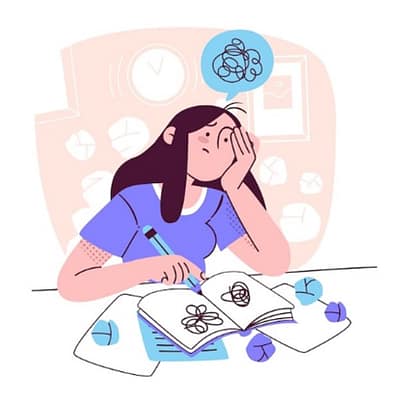
-
OCD
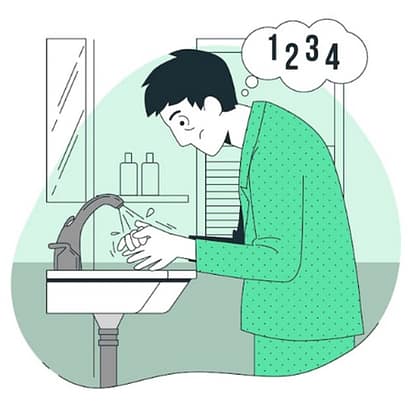
-
PTSD
PTSD can feel like carrying heavy bags of memories that anchor you in the past, making it hard to move forward. It’s not just being on edge; it’s a relentless mental battle. In such cases, dTMS treatment at the best transcranial magnetic stimulation hospitals in Mumbai serves as a gentle guide for your brain. It aids in untangling those knotted memories, akin to discovering a hidden path in a dense forest. Numerous individuals have found liberation from the clutches of TMS for PTSD, paving the way for a new chapter filled with hope and healing in their lives.
-
Migraine
Migraines are more than just headaches; they’re intense, pounding storms of pain that can disrupt daily life. dTMS for Migraine offers a glimmer of hope. It’s like a soothing breeze for your brain, calming the storm of pain. TMS therapy has shown promise in reducing both the frequency and severity of migraine attacks. Think of it as a gentle, natural way to find relief from the relentless pain of migraines, allowing individuals to regain control over their lives and enjoy more migraine-free days.
How effective is TMS therapy?
Wondering if TMS, or Repetitive Transcranial Magnetic Stimulation, really works? The answer is a resounding yes! The Efficacy of TMS in Alleviating Symptoms is remarkable in various mental health conditions.
- Studies and real-life experiences have highlighted its ability to improve mood, enhance cognitive function, and ultimately lead to a better quality of life.
- It’s like a key that unlocks the door to relief and recovery, offering those struggling with mental health challenges a path towards brighter days.
- The positive impact of TMS on alleviating symptoms underscores its significance as a valuable treatment option.
The TMS Treatment Process
Curious about what to expect during the dTMS treatment at the best transcranial magnetic stimulation hospitals in Mumbai? Here’s the scoop: it all begins with a thorough initial assessment where your unique needs are considered. Then, during each session, a magnetic coil is gently placed on your head, sending magnetic pulses to specific brain areas. The best part? It’s a non invasive treatment and virtually painless, allowing you to return to your daily routine right afterward. TMS typically involves multiple sessions over a few weeks, with the frequency and duration tailored to your individual treatment plan. It’s like a well-guided journey towards improved mental well-being.
-
Initial Assessment and Customization
Your journey with TMS, or Repetitive Transcranial Magnetic Stimulation, starts with a friendly chat. Our TMS Specialist in Mumbai wants to get to know you better, your medical history, your feelings, and what’s troubling you. It’s like getting a unique roadmap.
Once they understand your needs, they craft a personalized TMS plan. Imagine it as tailoring a suit to fit perfectly, but instead, they’re tailoring a plan to make your mind feel just right. This customized plan ensures that TMS targets the exact areas in your brain that need help, setting the stage for a successful and individualized treatment journey.
-
Sessions and Duration of TMS Therapy
TMS therapy typically involves a series of sessions conducted over several weeks. During each session, a magnetic coil is placed on the scalp, and magnetic pulses are delivered to the targeted areas of the brain. These sessions are usually painless and non invasive treatment, allowing patients to resume their daily activities immediately after treatment.
The duration of TMS therapy can vary depending on the individual and the condition being treated. Generally, a full course of treatment consists of multiple sessions, often ranging from 20 to 30 sessions. The frequency and duration of these sessions will be determined by the treatment plan established during the initial assessment.
What Are the Positive Effects Of TMS? Potential Benefits of Deep TMS Treatments and Expected
With TMS Clinic in Mumbai, or Repetitive Transcranial Magnetic Stimulation, exciting changes can happen. It often leads to a happier mood, like the sun coming out after a storm. Your thinking gets sharper, making tasks easier, like having a better toolkit for life’s challenges. Overall, it’s like lifting a weight off your shoulders, bringing more joy to your days. While results vary, TMS can guide you toward a brighter, more satisfying life. It’s like following the North Star on your journey to improved mental well-being.
-
Improvement in Mood, Cognitive Function, and Quality of Life
Certainly, let’s break down the improvements you can expect in mood, cognitive function, and overall quality of life with dTMS therapy.
-
Improvement in Mood
TMS therapy for depression has a remarkable ability to alleviate symptoms of mood disorders such as depression and TMS therapy for anxiety. It’s like opening the curtains to let in the sunshine on a gloomy day. People often report feeling happier and more positive as the treatment progresses. The weight of sadness and worry can lift, allowing you to experience a brighter emotional state.
-
Enhanced Cognitive Function
Can TMS improve brain function? Cognitive function refers to how well your brain processes information and performs mental tasks. With TMS, it’s like giving your brain a tune-up. You may notice improvements in memory, concentration, and problem-solving skills. It’s as if your cognitive abilities become sharper and more efficient, making daily tasks and decision-making easier.
-
Better Quality of Life
The ultimate goal of TMS therapy is to enhance your overall quality of life. Imagine carrying a heavy backpack full of mental health challenges—TMS can help you take that backpack off. Life starts to feel more enjoyable as the burden of mental health symptoms eases. It’s like stepping into a brighter, more fulfilling chapter, where you can savor everyday moments, pursue your goals, and experience a greater sense of well-being. While individual results may vary, these improvements in mood, cognition, and life quality are like guiding stars, pointing the way towards a more positive and satisfying future with TMS.
In the quest for better mental health, it’s essential to explore all available options. TMS therapy represents a promising approach that has brought relief and transformation to many individuals struggling with mental health conditions. By understanding how TMS works, the conditions it can treat, and the treatment process, you can make informed decisions about your mental health journey.
Keep in mind that asking for help with mental health problems is a sign of strength, not weakness. If you or someone you know is struggling with a mental health condition, consider RNR Medicine, the best dTMS clinic in Mumbai with a healthcare professional. It could be the key to unlocking a brighter, healthier future.



